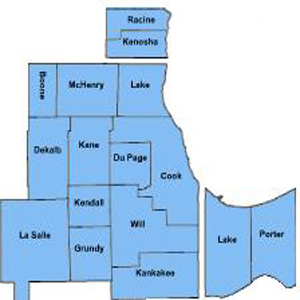Latest News
- Remembering that Southwest Gal, Judy Baar Topinka
- Corage: The Truth About Your Answers
- Santa Claus stops at Lyons Village Hall
- Needy and disabled children celebrate Christmas in Cicero
- Irks, quirks and Oughta be laws
- Cicero responds to false allegations against Animal Shelter
- Orland Park salutes religious diversity in new campaign
- From the Right: Remembering Judy Baar Topinka
Government Links
i
Provided by WebpageFX
Categories
 Blog Posts
Blog Posts
- Remembering that Southwest Gal, Judy Baar Topinka December 19, 2014 Ray Hanania
- Needy and disabled children celebrate Christmas in Cicero December 13, 2014 admin
- Irks, quirks and Oughta be laws December 13, 2014 admin
- Interview with former Oak Lawn Mayor Dave Heilmann December 5, 2014 Ray Hanania
- Corage: Breathing Space December 5, 2014 Justin Shimko
- From the Right: Declaring for the next election December 3, 2014 Justin Shimko
RAY HANANIA ON RADIO
EVERY FRIDAY 4 PM CST:
On 1450 AM Radio & live online at Yahala Voice Radio Online
Listen to Past Shows Available on iTunes
CALL IN 708-321-1313 ext 1
On 1450 AM Radio & live online at Yahala Voice Radio Online
Listen to Past Shows Available on iTunes
CALL IN 708-321-1313 ext 1







From the Right: Reaching Out After Ferguson
The events in Ferguson have brought out many strong opinions, but clinging to our comfort zones and ignoring a great chance to move grow?
By Justin Shimko
I’m curious how many people have had their Facebook news feed flooded with comments relating to the events in Ferguson. How many of you had your Twitter feed plastered with images, comments, meme’s, posts and whatnot appear on their feed that strongly slanted towards one side of the situation or the other regarding the small town in Missouri? Was it some people against the decision and a lot in favor of it? Did some people outwardly pray the Justice Department‘s investigation into the Ferguson Police Department will bring justice? Everyone criticizing the rioting and a few understanding why it happened? Or maybe a bunch of comparisons to the OJ trial or Rodney King riots?
We can let down our defenses to those that instigate fear in our subconscious. When we work to face these fears, reach out to the liberal who thinks your hero was a racist that further accelerated the gap between the rich and poor or talk to the evangelical who thinks gay marriage is an abomination to god’s laws, will we start understanding others and stop fearing that which is different. The situation in Ferguson did not have to happen. But it did. And it does.
The violence we see in the streets, the accusations of racism and thuggery (and both) are not just visible from this town, but all over the the nation. Sometimes the problem has a different name. Black and white. Rich and poor. Gay and straight, North and South. But this isn’t a Ferguson problem. Nor is it an American problem. It’s a human problem.
The dichotomy that breeds anger and hatred isn’t visible in Ferguson because of a cop who is free be broken down to the simplest issue that has plagued humanity since humanity began: differences make us uncomfortable and that discomfort leads to disagreement and violence. India and Pakistan, where religions are used to divide a people. Israel and Palestine, again with religion but also with property rights stemming hundreds of generations. China and Japan. Russia and Ukraine. Native Europeans and immigrants from all over. These all have histories no different than what we see in the United States.
Can we overcome this issue? Can we move forward after Ferguson, trusting one another and evolving to accept differences? Maybe. It starts when we acknowledge the differences and see what happens. Don’t fear but learn. Instead of forcing the government to find new ways to create animosity between two groups of people, we force ourselves to recognize that there are two groups of people and that the other group is, at the basic level, no different than us.
Justin Shimko
Latest posts by Justin Shimko (see all)
Share this:
Related